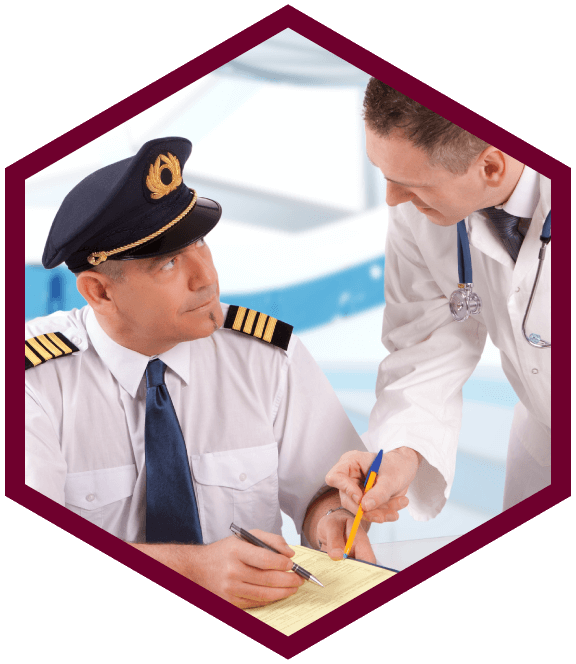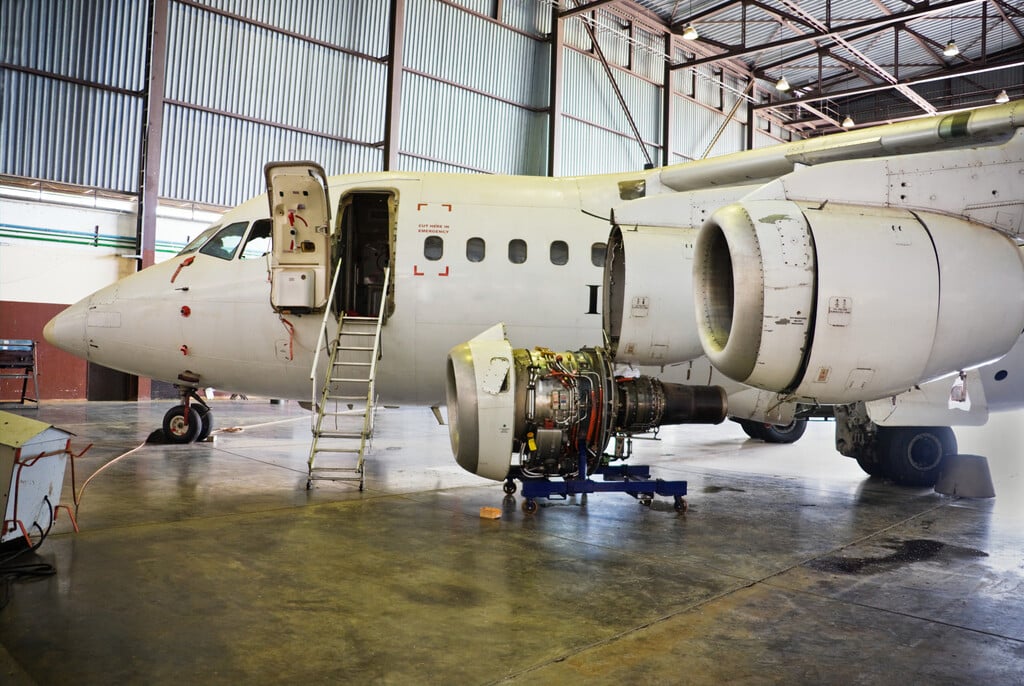Employers regulated by the Federal Aviation Administration (FAA) are required to have a drug and alcohol testing program. This includes air carriers and aircraft maintenance and preventive maintenance companies. The Federal Aviation Regulations require a regulated employer to ensure any individuals performing safety-sensitive functions by contract for it are included in a FAA-mandated drug and alcohol testing program.
Order Today your FAA Drug Test. This is commonly called a DOT urine drug test. A pre-employment DOT FAA Drug Test is required for FAA regulated companies in the aviation industry including aircraft maintenance facilities. Random testing is also required.
You can start the process of setting up an FAA drug and alcohol testing program with our online form for new employer accounts.
Employers regulated by the Federal Aviation Administration (FAA) are required to have a drug and alcohol testing program. This includes air carriers and aircraft maintenance and preventive maintenance companies. The Federal Aviation Regulations require a regulated employer to ensure any individuals performing safety-sensitive functions by contract for it are included in a FAA-mandated drug and alcohol testing program.
Maintaining compliance with FAA required drug and alcohol testing program is complex. National Drug Screening has specialized in FAA compliance for drug and alcohol testing for many years, Joe Reilly is the President of National Drug Screening and available for initial consultation for your FAA compliant drug and alcohol testing program, call Joe at 321-622-2020.
The FAA regulation for drug and alcohol testing is 14 CFR Part 120. We maintain a summary page of this regulation. This is great information for your initial review of what you need in your program.
The following types of safety-sensitive functions are covered by the FAA’s drug and alcohol testing regulations:
- Flight crewmember duties
- Flight attendant duties
- Aircraft dispatcher duties
- Flight crewmember duties
- Aircraft maintenance and preventive maintenance
- Ground security coordinator duties
- Aviation screening duties
- Air traffic control duties
- Part 119 Certificate Holders
- Air Tour Operators
- Air traffic control facilities not operated by the FAA
- Part 145 Certificate Holders
- FAA Repair Stations
National Drug Screening provides expert assistance since 1993 in providing DOT FAA drug and alcohol testing programs and compliance with the regulations. Call Now for Free Consultation!
When Developing Your FAA-Mandated Drug and Alcohol Testing Program, You Must:
- Ensure that no one is hired for or transferred into a safety-sensitive function without first conducting a pre-employment drug test and receiving a verified negative test result.
- Conduct a drug and alcohol records check, after obtaining an employee’s written consent, requesting the information included in 49 CFR part 40, § 40.25(b) from DOT-regulated employers who have employed this individual during the two years prior to the date of application or transfer; five years for pilots.
- Ask employees or applicants entering safety sensitive positions whether they previously tested positive or refused to take a pre-employment drug or alcohol test.
- Educate and train your employees on the effects and consequences of drug abuse and alcohol misuse, as well as your supervisors who will make determinations of whether reasonable cause/suspicion testing is necessary.
- Ensure that employees are included in your random drug and alcohol testing pool and have an equal chance of being tested each time selections are made. You must conduct annual random testing at a minimum rate of 25% for drugs and 10% for alcohol.
- Review part 120 and part 40 for all the drug and alcohol testing requirements. Copies of the regulations and additional guidance materials are available at www.faa.gov/go/drugabatement and www.dot.gov/odapc.
- When implementing your testing program, you must ensure that all individuals performing safety-sensitive functions are included. Don’t forget aircraft maintenance or preventive maintenance.
Are you the Designated Employer Representative (DER) for an FAA Drug & Alcohol Testing Program?
Every Designated Employer Representative (DER) should have the knowledge and authority to make decisions about his or her aviation employer’s drug and alcohol testing program. The DER is responsible for educating employees, conducting drug and alcohol tests, making sure the program complies with DOT/FAA regulations, and maintaining all documentation. Designated Employer Representatives (DERs) play a vital role in maintaining safety in the aviation industry by ensuring that their employers and employees comply with DOT/FAA’s Drug and Alcohol Testing regulations.
Upon a positive drug or alcohol test or a refusal to test, the DER must insure the employee is removed from the safety sensitive position and referred to a Substance Abuse Professional (SAP).
Are you prepared for an audit on your FAA DOT drug & alcohol testing program? Learn the rules for managing your FAA DOT drug & alcohol testing program.
Need assistance, review the FAA Video Series for DER’s – Click Here
Sign up for our Online DER Training – Click Here
Contact National Drug Screening for a turnkey program for FAA drug and alcohol testing compliance. Our services include:
- Instructions for start up of FAA drug alcohol program
- Regulations summary registration information FAA regulation – 14 CFR part 120
- DOT/FAA drug & alcohol testing written policy
- Employee education materials DOT
- Supervisor training materials DOT
- Qualified collection sites
- Required drug & alcohol testing
- Samhsa cerfitied laboratory
- Medical Review Officer (MRO)
- All required forms and documentation
- 49 CFR part 40 - DOT drug/alcohol testing regulations

Best Practices for FAA Compliance
- Consider revising your employee hiring status form to include a block that indicates when a negative pre-employment drug test result is received.
- Review employee applications carefully and talk to applicants about the duties they performed at previous jobs to determine whether they worked for a DOT-regulated employer.
- Document employees’ answers when you ask them whether they previously tested positive or refused to take a pre-employment drug or alcohol test.
- Document your notification to employees of the five drugs included in pre-employment testing.
- Conduct recurrent training for supervisors on a 12-18 month schedule, and include a refresher on alcohol testing.
- Establish a process to update the random testing pool just before each selection.
- Before notifying an employee to report for testing, make sure that both the employee and the collection site are available and ready to test.
- Document your notification of random testing for each selected employee, and the reason any employee is excused from testing.
- Conduct recurrent training for supervisors on a 12-18 month schedule, and include a refresher on alcohol testing.
- Document all parts of training, including the date it took place, who attended, how long it lasted, and what topics were covered.
- Schedule regular audits of your collection sites and personnel.
- Maintain open and regular communications with collection site personnel.
- Before notifying an employee to proceed to the collection site for a test, make sure the collection site is ready and available.
- After each collection, conduct a quality review of all custody and control forms and alcohol testing forms.
- Talk to the SAP if you have any questions about the SAP’s recommendations. You must follow the SAP’s plan, so make sure you understand it.
- Before sending an employee for a return-to-duty or follow-up test, explain the direct observation process to the employee. After the test is taken, verify that the direct observation process was used.
- When an employee goes on extended leave during the follow-up testing program, the clock stops. The follow-up testing plan resumes whenever the employee returns or goes to a new DOT employer.

Consequences of Using Drugs or Alcohol While Performing Safety-Sensitive Functions: A covered employee who has engaged in prohibited drug use or alcohol misuse during the performance of a safety-sensitive function will be immediately removed from performing safety-sensitive functions and permanently precluded from performing the same safety-sensitive function for any FAA-regulated employer.
Consequences of a Verified Positive Drug Test or an Alcohol Test at 0.04 or Higher Breath Alcohol Content (BAC): A covered employee who receives a verified positive drug test result or alcohol violation on a FAA required test will be immediately removed from safety-sensitive duties. An employee who has violated a FAA drug and/or alcohol violation cannot return to the performance of safety-sensitive duties until the employee has been evaluated by a Substance Abuse Professional and successfully completed the return-to-duty process outlined in 49 CFR Part 40, Subpart O (49 CFR §40.23(d)).
Don’t Hesitate and Risk Fines – Get in Compliance Now
ts for FAA Drug Testing Compliance – National Drug Screening






